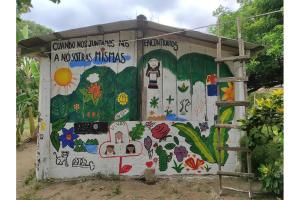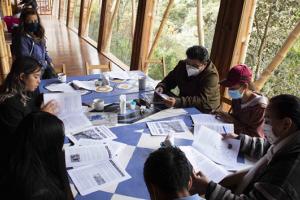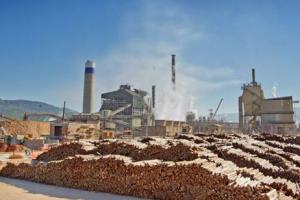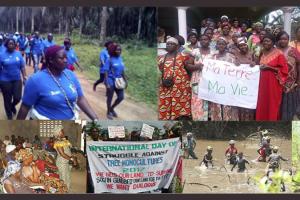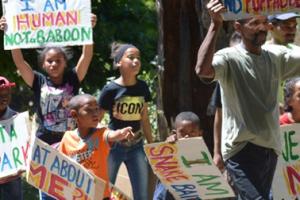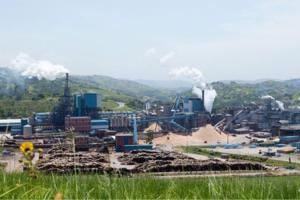Struggles Against Tree Monocultures
Corporate profit drives land grabs to install industrial tree monocultures. Where industrial plantations take root, communities' territories and lives are violently invaded, their forests destroyed and their water polluted. When communities resist, companies tend to respond with aggression. Despite this extreme violence, communities around the world are resisting, organizing and joining forces to defend their territories. Every September 21 the International Day of Struggle against Monoculture Tree Plantations is celebrated.
One of the main causes of deforestation in Mesoamerica is the expansion of oil palm monoculture. An exchange of experiences brought together representatives from indigenous and peasant communities to coordinate their resistance.
Several of Sappi’s plantations have been converted from pine to eucalyptus trees without authorization. Data obtained in over 75 years to verify timber plantations’ water use demonstrate that eucalyptus trees use 30 to 50% more water than pine trees.
Despite the many profound damages that industries cause in the world's forests, they also cause something else to emerge: the strong and diverse resistance movements of affected communities defending their territories, livelihoods, cultures and even their existence. The struggle continues! (Available in Swahili).
